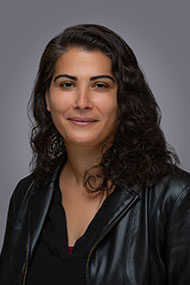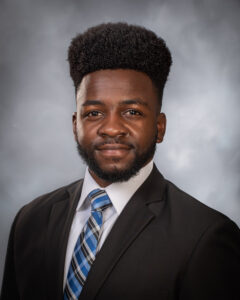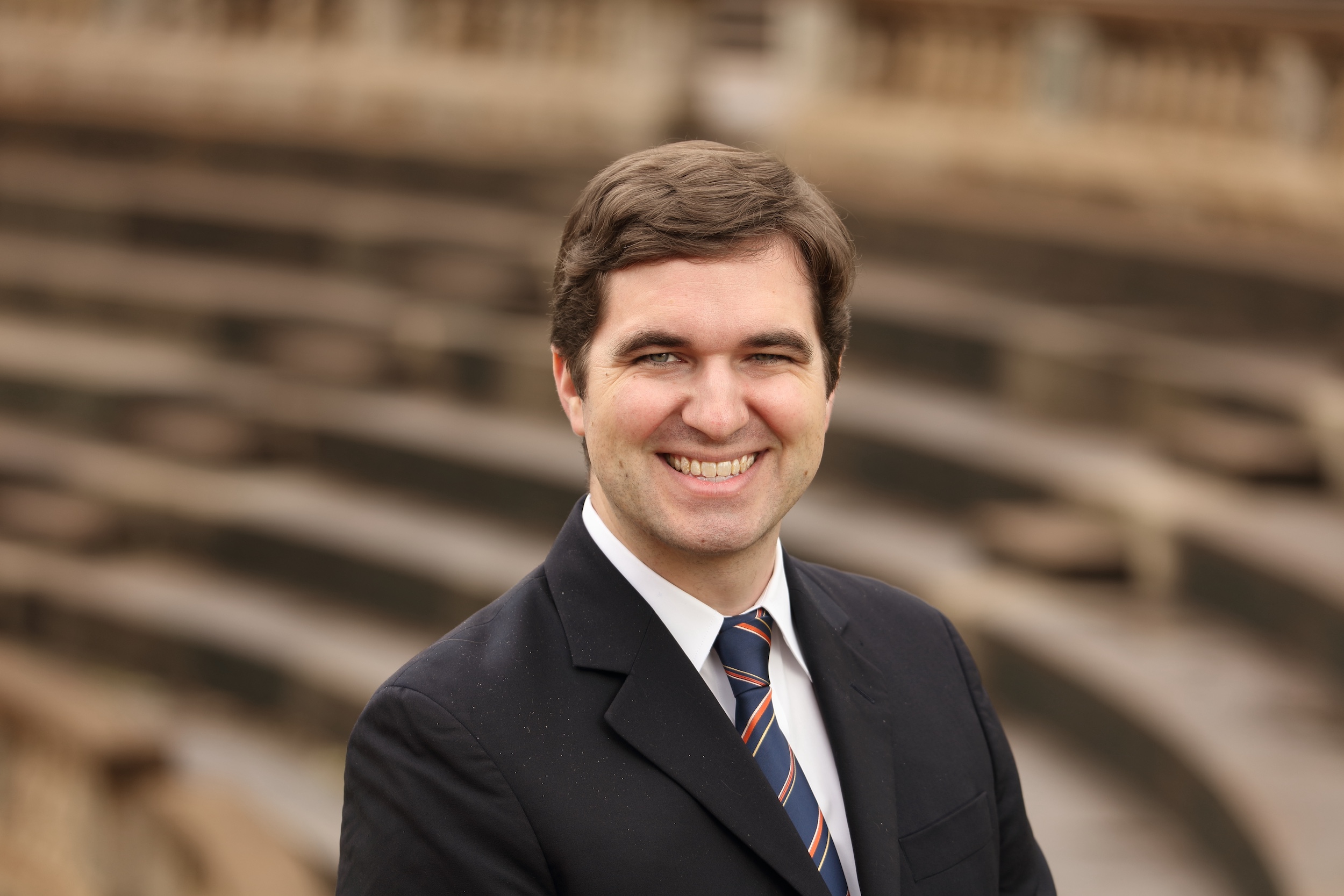2024-2025 Small Grant Awards Announced
Wednesday, December 4
The Center for Effective Lawmaking (CEL) is proud to present its 7th annual small grant awards and recipients. The awards are given to scholars who are researching topics that connect to the mission of the CEL to advance the generation, communication, and use of new knowledge about the effectiveness of individual lawmakers and legislative institutions. This group of scholars will join previous grant recipients who have made insightful contributions to the study of lawmaking effectiveness. We are honored to support the awardees and look forward to seeing how their research develops in the future.
Here are the grant recipients for 2024-2025:

Sahar Abi-Hassan is an Assistant Professor of Political Science at the Oakland campus at Northeastern University. She teaches courses on American politics, law and society, law and courts, and research methods. In 2021 she was recognized as the Kathryn P. Hannam Professor of American Politics. Her research spans judicial politics, legal advocacy, and political methodology, where she has extensively examined the individual qualities of interest groups and the nature of interactions between, and its influence on the behavior of the courts in the United States. In a recent paper published in the Political Analysis journal, Professor Abi-Hassan and her co-authors leverage the power of network analysis with extensive knowledge of judicial politics to produce the first ideology score for all amicus-filing organizations in Supreme Court litigation. Abi-Hassan is currently involved in interdisciplinary research that maps all the writ of certiorari petitions filed with the Supreme Court to understand how the supply of legal questions shapes the court’s agenda-setting process. With a better understanding of the supply of legal questions, Professor Abi-Hassan hopes to build a more comprehensive picture of how the Supreme Court populates its plenary docket. Her broader interests include the behavior of U.S. political institutions, political analysis, and quantitative political methodology.

Andrew Ballard is an Assistant Professor of Political Science at Florida State University. He studies American politics with a particular interest in legislative institutions, political parties, and the interplay between legislators and the public. Some of the over-arching questions he investigates are: Why do minority parties have influence over legislation? How do party goals drive legislative behavior? Why are some legislators and citizens more willing to compromise politically? What are the causes and consequences of polarizing and uncivil rhetoric from legislators? His published work appears in the American Political Science Review, The Journal of Politics, Legislative Studies Quarterly, Party Politics, and elsewhere. He has a book under contract with Oxford University Press and another book manuscript in preparation. He received his Ph.D. in political science from Duke University.

Janet M. Box-Steffensmeier is Vernal Riffe Professor of Political Science, Professor of Sociology by courtesy, and Distinguished University Professor (B.A., Coe College 1988; Ph.D., University of Texas at Austin, 1993.) She was honored as an inaugural Fellow of the Society for Political Methodology in 2008 and member of the 2017 class of the American Academy of Arts and Sciences. Box-Steffensmeier has held leadership roles in various political science associations, including serving as President of the American Political Science Association, having served as the Treasurer and Vice President previously. She also served as the President of the Midwest Political Science Association and Political Methodology Society. In 2013, she received the Warren E. Miller Award for Meritorious Service to the Social Sciences from the Inter-university Consortium for Political and Social Research (ICPSR). She has twice received the Gosnell Award for the best work in political methodology and the Emerging Scholar Award of the Elections, Public Opinion, and Voting Behavior Section of the American Political Science Association in 2001. Additionally, she has been recognized as for her mentoring and teaching excellence. The Box-Steffensmeier Graduate Student Award, given annually by the Inter-university Consortium for Political and Social Research, is named after her in recognition of her contributions in political methodology and her support of women in the field. She received a Distinguished Teaching Award from the Political Science Department in 2013, Distinguished Undergraduate Mentor Award from The Ohio State University in 2009, Political Methodology Excellence in Mentoring Award in 2016, Women’s Caucus for the Midwest Political Science Association’s Outstanding Professional Achievement for Scholarship and Mentorship in 2016, Ohio State University Distinguished Scholar award in 2012, and Political Methodology Career Achievement Award in 2013. Her service at The Ohio State University includes Faculty Representative to The Ohio State University Board of Trustees in 2013 and 2014, Divisional Dean for Social and Behavioral Sciences and the Dean for Graduate Affairs for the College of Arts and Science from 2014-2018, and Interim Executive Dean and Vice Provost 2018-2019. As a scholar of American Politics and Political Methodology, she continues to direct the Program in Statistics and Methodology (PRISM) at the graduate level and the American Institutions and Methodology Lab for undergraduates.

Dino Pinterpe Christenson is a Professor (Ph.D., Ohio State University; B.A., University of Michigan) in the Department of Political Science at Washington University, a faculty affiliate in the Division of Computational & Data Science, and a research fellow at the Weidenbaum Center on the Economy, Government, and Public Policy. His recent work explores presidential voting behavior, campaign dynamics in primary elections, the coalition strategies of interest groups, and public opinion and the media environment of institutional outcomes. His articles have appeared in American Political Science Review, American Journal of Political Science, Political Analysis, Political Behavior, and Social Networks, among other outlets. His work has received the Editors’ Choice Article Award from Political Analysis, the Best Article Award by the Law & Courts Section of APSA, as well as the Best Article Award from Political Research Quarterly. He is coauthor of The Myth of the Imperial Presidency: How Public Opinion Checks the Unilateral Executive (University of Chicago Press, 2020) and Applied Social Science Methodology: An Introductory Guide (Cambridge University Press, 2017). His work has been supported by grants from the National Science Foundation, the National Institutes of Health, the Hariri Institute, and the Dirksen Congressional Center.

Mackenzie Dobson is a doctoral student at the University of Virginia, and holds a M.A. and B.S. in Political Science from Appalachian State University. Her research interests consist of American legislative institutions, legislative effectiveness, and public policy.

Mirya R. Holman is an Associate Professor at the Hobby School of Public Affairs at the University of Houston. She is an expert on gender and politics, urban politics, and political behavior. She’s published widely in these areas, including books, The Power of the Badge and Women in Politics in the American City and her co-edited volume Good Reasons to Run. Her work right now focuses on understanding the obstacles to equality in local politics, including examinations of women’s representation on boards and commissions and conflict in schools and cities. She writes and distributes a weekly mentoring newsletter called Mirya Holman’s Aggressive Winning Scholars (MHAWS).

Peter McLaughlin is an Assistant Professor of Political Science at the University of Rhode Island. His research centers on the United States Congress, with a particular focus on representation, distributive politics, and electoral reform. Some of his ongoing projects explore public opinion on legislative redistricting and the relationship between legislator effectiveness and constituent support. His work has been published in Legislative Studies Quarterly, the Journal of Public Policy, and Political Behavior. He earned his Ph.D. from the University of Oklahoma, where he was a research fellow at the Carl Albert Congressional Research and Studies Center. Before pursuing his Ph.D., he served as the research director at Vote Smart, a nationwide voter education nonprofit.

Emily Cottle Ommundsen is an Assistant Professor of Political Science at the University of Mississippi. Her research focuses on American political institutions, particularly congressional representation and institutional capacity. Her research has been published in Legislative Studies Quarterly, Political Behavior, and PS: Political Science & Politics. Ommundsen earned her M.A. and Ph.D. in Political Science from the University of North Carolina at Chapel Hill, and her B.A. in Political Science and Religious Studies from Bucknell University. Previously, she worked for both the United States Senate and House of Representatives in personal and committee offices.

Darrian Stacy is an Assistant Professor of Political Science at the United States Naval Academy. He earned a B.A. in Political Science and a B.A. in Philosophy from the University of Georgia. He also earned a M.A. and a Ph.D. in Political Science from Vanderbilt University. His research focuses on American Political Institutions, with an emphasis on legislative politics and policymaking as well as economic inequality within Congress.

James Strickland is an Associate Professor in the School of Politics and Global Studies at Arizona State University. He received his PhD in political science from the University of Michigan in 2019. His research interests include legislatures and lobbying in the American states. In his research, he examines revolving-door lobbying and historical changes in lobbying. His research has appeared in the American Journal of Political Science and Political Science Research and Methods, among other journals. He plans to use the grant from the Center for Effective Lawmaking to determine if effective state legislators become effective lobbyists.
Go here to view previous grant recipients.
If you are interested in applying for a research grant through the Center for Effective Lawmaking, please join our email list or contact us at thelawmakers@virginia.edu.



